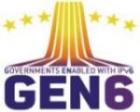 A scientific paper entitled “Design of a decision support system, trained on GPU, for assisting melanoma diagnosis in dermatoscopy images” has been accepted for oral presentation at the 4th International Conference on Mathematical Modeling in Physical Sciences (IC-MSQUARE 2015), which is held in Mykonos, Greece, on June 5-8, 2015. Konstantinos Perakis, Thanassis Bouras and their co-authors present the design of a decision support system for assisting the diagnosis of melanoma in dermatoscopy images. Clinical material comprised images of 44 dysplastic (clark’s nevi) and 44 malignant melanoma lesions, obtained from the dermatology database Dermnet. Initially, images were processed for hair removal and background correction using the Dull Razor algorithm. Processed images were segmented to isolate moles from surrounding background, using a combination of level sets and an automated thresholding approach. Morphological (area, size, shape) and textural features (first and second order) were calculated from each one of the segmented moles. Extracted features were fed to a pattern recognition system assembled with the Probabilistic Neural Network Classifier, which was trained to distinguish between benign and malignant cases, using the exhaustive search and the leave one out method. Results showed that the designed system discriminated benign from malignant moles with 88.6 % accuracy employing morphological and textural features. The proposed system could be used for analysing moles depicted on smart phone images after appropriate training with smartphone images cases. This could assist towards early detection of melanoma cases, if suspicious moles were to be captured on smartphone by patients and be transferred to the physician together with an assessment of the mole’s nature.
A scientific paper entitled “Design of a decision support system, trained on GPU, for assisting melanoma diagnosis in dermatoscopy images” has been accepted for oral presentation at the 4th International Conference on Mathematical Modeling in Physical Sciences (IC-MSQUARE 2015), which is held in Mykonos, Greece, on June 5-8, 2015. Konstantinos Perakis, Thanassis Bouras and their co-authors present the design of a decision support system for assisting the diagnosis of melanoma in dermatoscopy images. Clinical material comprised images of 44 dysplastic (clark’s nevi) and 44 malignant melanoma lesions, obtained from the dermatology database Dermnet. Initially, images were processed for hair removal and background correction using the Dull Razor algorithm. Processed images were segmented to isolate moles from surrounding background, using a combination of level sets and an automated thresholding approach. Morphological (area, size, shape) and textural features (first and second order) were calculated from each one of the segmented moles. Extracted features were fed to a pattern recognition system assembled with the Probabilistic Neural Network Classifier, which was trained to distinguish between benign and malignant cases, using the exhaustive search and the leave one out method. Results showed that the designed system discriminated benign from malignant moles with 88.6 % accuracy employing morphological and textural features. The proposed system could be used for analysing moles depicted on smart phone images after appropriate training with smartphone images cases. This could assist towards early detection of melanoma cases, if suspicious moles were to be captured on smartphone by patients and be transferred to the physician together with an assessment of the mole’s nature.
Source: http://www.icmsquare.net/

 UBITECH participated at IPv6 for innovative government and public services workshop that took place in Athens, April 21st, 2015. The workshop was organized by the “Governments Enabled with IPv6” (GEN6) European IPv6 project along with the Hellenic IPv6 Task Force (HTFv6) that UBITECH is a member. In the workshop, a set of presentations were given with regards to IPv6 deployments in public administration networks across Europe, IPv6 experience from Telcos large-scale deployments in Greece as well as presentations related with the advantages of IPv6 for the IoT and next generation networking world. Representatives from Greek public bodies, academic institutions, SMEs and EU GEN6 partners participated at the workshop and presented their views on the subject. On behalf of UBITECH, Dr. Anastasios Zafeiropoulos provided a presentation entitled “Rapid and adaptive applications deployment over programmable infrastructure – IPv6 considerations” based on the work initiated in the ARCADIA H2020 project, describing the IPv6 considerations with regards to the exploitation of IPv6 characteristics at the design and development of a smart orchestrator capable to deploy and dynamically re-configure applications/services provision over multi-IaaS infrastructure.
UBITECH participated at IPv6 for innovative government and public services workshop that took place in Athens, April 21st, 2015. The workshop was organized by the “Governments Enabled with IPv6” (GEN6) European IPv6 project along with the Hellenic IPv6 Task Force (HTFv6) that UBITECH is a member. In the workshop, a set of presentations were given with regards to IPv6 deployments in public administration networks across Europe, IPv6 experience from Telcos large-scale deployments in Greece as well as presentations related with the advantages of IPv6 for the IoT and next generation networking world. Representatives from Greek public bodies, academic institutions, SMEs and EU GEN6 partners participated at the workshop and presented their views on the subject. On behalf of UBITECH, Dr. Anastasios Zafeiropoulos provided a presentation entitled “Rapid and adaptive applications deployment over programmable infrastructure – IPv6 considerations” based on the work initiated in the ARCADIA H2020 project, describing the IPv6 considerations with regards to the exploitation of IPv6 characteristics at the design and development of a smart orchestrator capable to deploy and dynamically re-configure applications/services provision over multi-IaaS infrastructure. UBITECH participated at Net Futures 2015 that took place in Brussels, March 25-26, 2015, while a presentation was provided at the Network Apps Session. The session explored the challenged introduced and the opportunities opened up by the transition to Software Networks that the Telecommunications Industry is experiencing. Different actors (Operators, Manufacturers, SMEs and academia) are facing them from different angles. The session explored the interactions between the established manufacturers and the SMEs and if a Marketplace for Network Applications would be the right instrument to foster Network Innovation.
UBITECH participated at Net Futures 2015 that took place in Brussels, March 25-26, 2015, while a presentation was provided at the Network Apps Session. The session explored the challenged introduced and the opportunities opened up by the transition to Software Networks that the Telecommunications Industry is experiencing. Different actors (Operators, Manufacturers, SMEs and academia) are facing them from different angles. The session explored the interactions between the established manufacturers and the SMEs and if a Marketplace for Network Applications would be the right instrument to foster Network Innovation. UBITECH has participated in the CloudWATCH Concertation meeting at Net Futures 2015 that took place in Brussels, March 25th, 2015. The objective of the concertation meeting was to look at future directions for software services and cloud in Europe, highlighting new opportunities for novel research and innovation to ensure Europe remains a world leader. The meeting was oriented towards all the active projects that are part of Unit E2 Software Services and Cloud. Representatives from these projects provided existing research and innovation outcomes, while a short presentation of all the relevant projects that were funded from the H2020 Call 1 projects was provided. UBITECH presented the ARCADIA H2020 project, while was also active towards disseminating the work initiated in the PaaSword and INPUT H2020 projects.
UBITECH has participated in the CloudWATCH Concertation meeting at Net Futures 2015 that took place in Brussels, March 25th, 2015. The objective of the concertation meeting was to look at future directions for software services and cloud in Europe, highlighting new opportunities for novel research and innovation to ensure Europe remains a world leader. The meeting was oriented towards all the active projects that are part of Unit E2 Software Services and Cloud. Representatives from these projects provided existing research and innovation outcomes, while a short presentation of all the relevant projects that were funded from the H2020 Call 1 projects was provided. UBITECH presented the ARCADIA H2020 project, while was also active towards disseminating the work initiated in the PaaSword and INPUT H2020 projects. UBITECH has participated in the kick-off meeting of the SAGE-CARE research project in Darmstadt, Germany (February 12-13, 2015), officially started on December 1st, 2014. The project is funded by European Commission under Horizon 2020 Programme (Grant Agreement No. 644186) and spans on the period December 2014 – November 2017. The focus of SAGE-CARE is the semantically integrating, linking and analyzing genomic, research and Electronic Health Records data for cancer management.
UBITECH has participated in the kick-off meeting of the SAGE-CARE research project in Darmstadt, Germany (February 12-13, 2015), officially started on December 1st, 2014. The project is funded by European Commission under Horizon 2020 Programme (Grant Agreement No. 644186) and spans on the period December 2014 – November 2017. The focus of SAGE-CARE is the semantically integrating, linking and analyzing genomic, research and Electronic Health Records data for cancer management. The results of the 1st year of implementation of the LinDA* FP7-610565 project have been successfully demonstrated during the periodic project review on 29/1 at the European Commission in Luxembourg. Among these, the first release of the LinDA workbench, which is now ready for deployment into the LinDA Pilots, as well as the setup of the pilots (fostering Business Intelligence Analytics, Environmental Analytics, Media Analytics) that are going to be executed and validated during the second year of the project.
The results of the 1st year of implementation of the LinDA* FP7-610565 project have been successfully demonstrated during the periodic project review on 29/1 at the European Commission in Luxembourg. Among these, the first release of the LinDA workbench, which is now ready for deployment into the LinDA Pilots, as well as the setup of the pilots (fostering Business Intelligence Analytics, Environmental Analytics, Media Analytics) that are going to be executed and validated during the second year of the project. UBITECH has participated in the Brussels kick-off meeting of the FALCON research project, officially started on January 1st, 2015. The project is funded by European Commission under Horizon2020 Programme (Grant Agreement No. 636868) and spans on the period January 2015 – December 2017. The aim of FALCON is to monitor the real usage of the products and services in operation and the consumers’ feedback on social media, in order to extend product and service lifespan and optimize the use of the necessary resources all along their lifecycle. The innovative FALCON open environment will optimize the use of collected information enabling a concurrent, collaborative and productive product-service design process.
UBITECH has participated in the Brussels kick-off meeting of the FALCON research project, officially started on January 1st, 2015. The project is funded by European Commission under Horizon2020 Programme (Grant Agreement No. 636868) and spans on the period January 2015 – December 2017. The aim of FALCON is to monitor the real usage of the products and services in operation and the consumers’ feedback on social media, in order to extend product and service lifespan and optimize the use of the necessary resources all along their lifecycle. The innovative FALCON open environment will optimize the use of collected information enabling a concurrent, collaborative and productive product-service design process.
